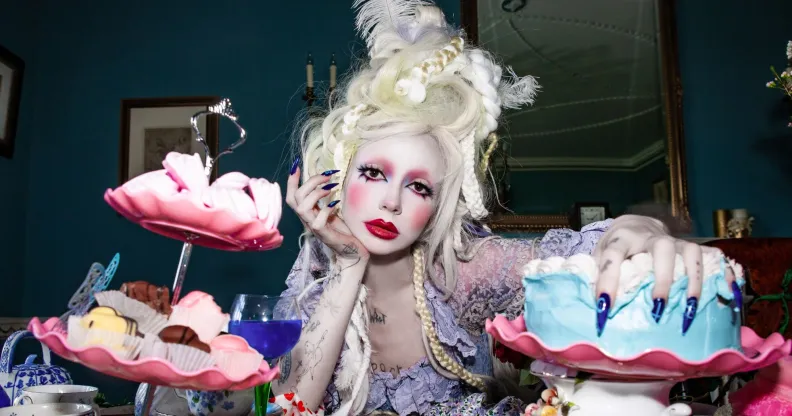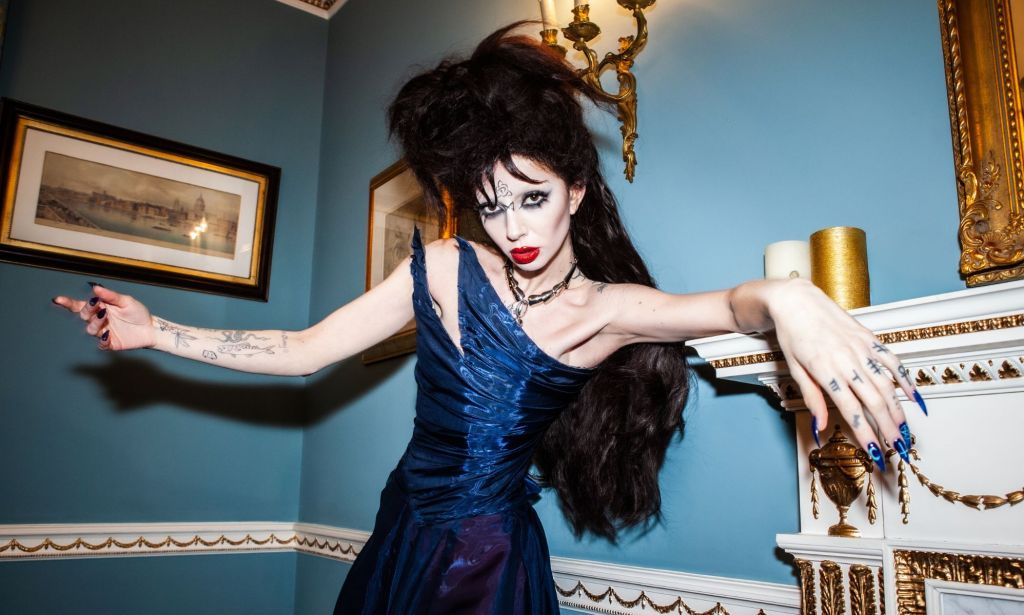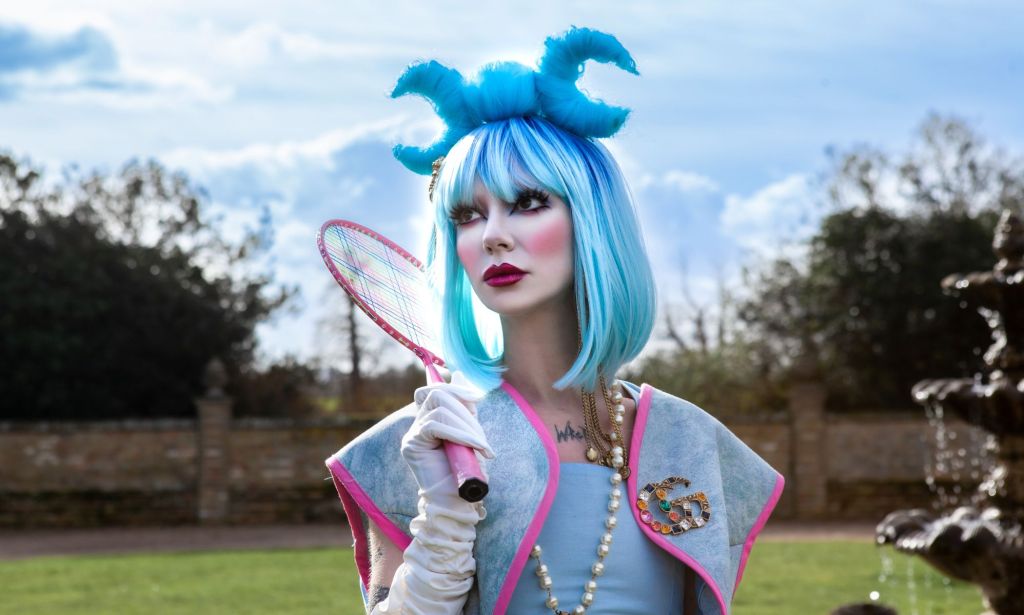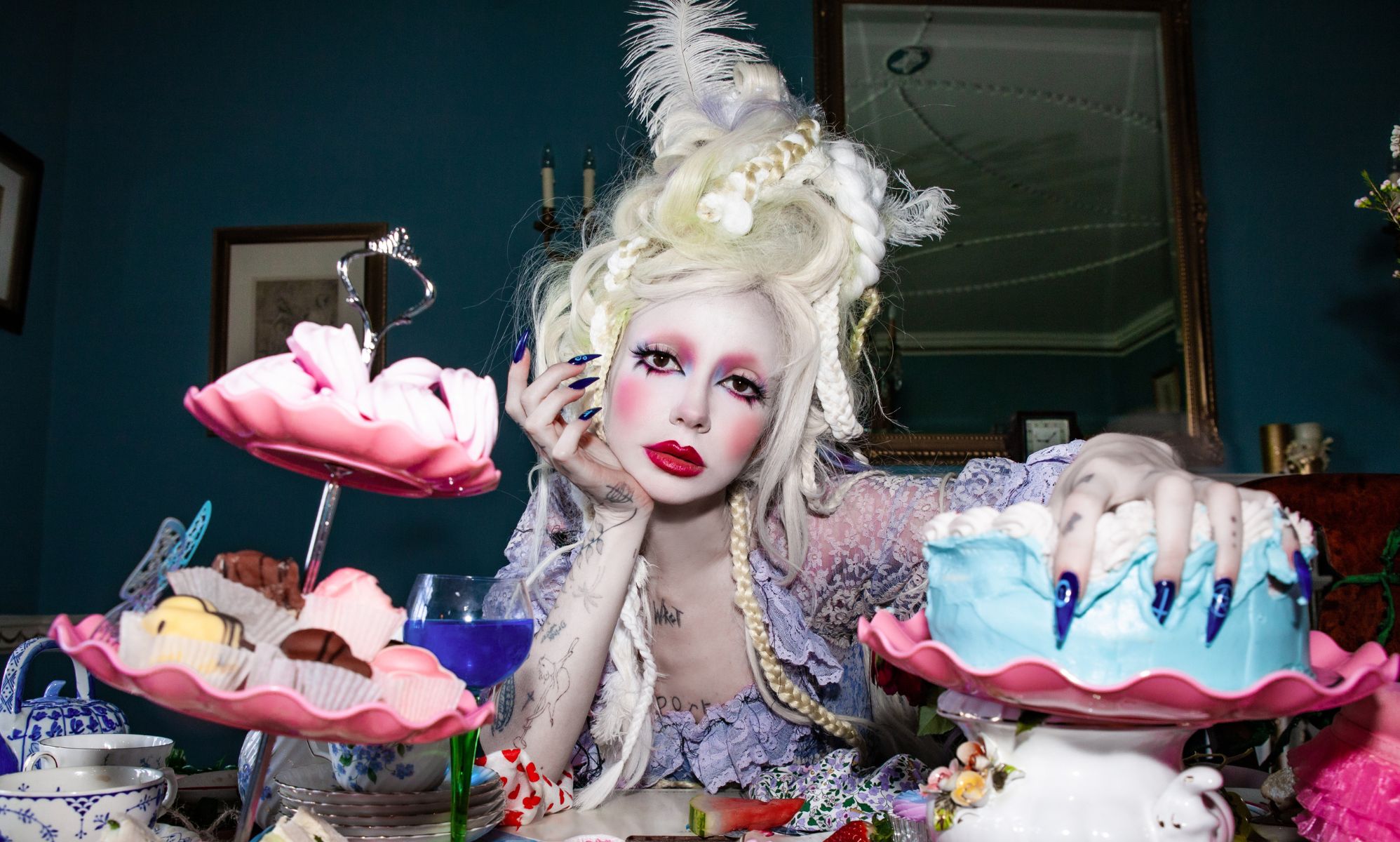
Bambie Thug, Ireland’s Eurovision 2024 entrant, talks to PinkNews about non-binary representation. (Lily Lytton)
Ireland’s Eurovision Song Contest entrant Bambie Thug has explained why the historic non-binary representation at this year’s competition is “important – especially now”.
In 2014, the Eurovision Song Contest was dominated by a little-known Austrian artist named Thomas Neuwirth – now recognised as his drag alter ego Conchita Wurst – who rose to the top of the leader board and made history as Eurovision’s first drag winner.
Sitting at home with their family in Cork, Ireland, that night was Bambie Ray Robinson, aka self-described “Ouija-pop” singer Bambie Thug, then just 21 and six years away from releasing any kind of music.
Watching Conchita on stage “being authentically them and not really caring” 10 years ago, “changed something” in Bambie as a person, they told PinkNews. A decade later, and they’re hoping to be that same inspiration for young queer kids watching this year.
After winning Ireland’s national selection contest, Eurosong, in January with their genre-defying romp of a song, “Doomsday Blue”, the singer-songwriter will become the first non-binary artist to represent the country at the contest.
It’s a huge accomplishment, but it comes with a hefty responsibility. Of course, there’s the small fact that Ireland is currently tied with current reigning country, Sweden, for the most Eurovision wins: seven. Plus, Eurovision has a huge LGBTQ+ following – including younger queer people who are looking to the contest for someone to admire, as Bambie did with Conchita.
“When someone sees something [that represents them], it allows you to open yourself more,” Bambie said.
While they have been showered with love by Ireland’s LGBTQ+ community – including drag performers who have created routines to “Doomsday Blue” – Bambie said that “the best messages are always from little queer kids who have been able to feel more comfortable in themselves from having a representative like [me]”.
But it’s not just young queer people getting in touch.
“I’ve had parents reach out about their non-binary children or their queer kids… representation is always important, [but] especially now. It’s not the safest world for non-binary and trans people, for any of our community.”
Bambie is about to be seen on one of the world’s biggest music platforms as a at a time when trans and non-binary people are having their rights challenged worldwide, and their identities ridiculed by major political and cultural figures. Seeing them conquer Eurovision is a huge win for Ireland’s queer community, but they’ve also been used as bait to stoke culture wars in the country.

After Bambie’s Eurosong win was announced, Hermann Kelly, the president of the right-wing Irish Freedom Party, dubbed them “woke nonsense [that] celebrated Satanism”, while another miserable soul set up a petition to get the star removed from the competition.
However, Bambie’s message to the haters is scathing: “Practice self-compassion and perhaps you will learn to live in love,” they said in February.
This year in particular, Bambie is feeling the love at Eurovision, considering there are numerous other LGBTQ+ artists representing other countries. That includes Switzerland’s entrant and the favourite to win Nemo, and the UK’s Olly Alexander. It’s the first time in the contest’s long history that more than one competitor has identified as non-binary.
“Eurovision is like the gay olympics anyway, but it’s changed now, because it’s being a bit more inclusive. I’m really grateful,” Bambie said. “It feels correct.
“I always say that culture starts within the queer community. We definitely deserve more light on us, all of us. To have [numerous] non-binaries in the competition, it’s an amazing feat.”
While being a Eurovision entrant is an undeniably stressful experience, having other non-binary and LGBTQ+ artists around has made the process a little easier.

“It feels super special to also have somebody there who understands my brain a bit. We have a little gang of us queers. There is just something more calming about having more members of your community around you.”
Bambie will feature in the first semi-final on 7 May, vying for a coveted spot in the grand finale. Picking their song was a strategic move: it fits Eurovision’s penchant for “bizarre” tunes and lends itself to a captivating stage performance both for those at Sweden’s Malmö Arena and the millions watching at home.
They had a bit of trouble deciding whether to go with “Doomsday Blue” and or another track from their EP, Cathexis, but the other option just didn’t feel right.
“The other one was safer and more like a ballad and I was like, ‘That’s not showing me’. I was like: ‘F**k that. I want to scream. I want to showcase multiple facets of me’.”
Bambie knows it’s not a song for everyone because it’s a warped merger of pop, jazz, metal and everything in between.
“It’s a bit quirky… it’s Marmite,” Bambie laughed. “Whether you love it or hate it, it’s causing a reaction in you and that’s good.”
The Eurovision Song Contest semi-finals take place on 7 and 9 May, and the final is on 11 May, and will air on BBC One in the UK.
